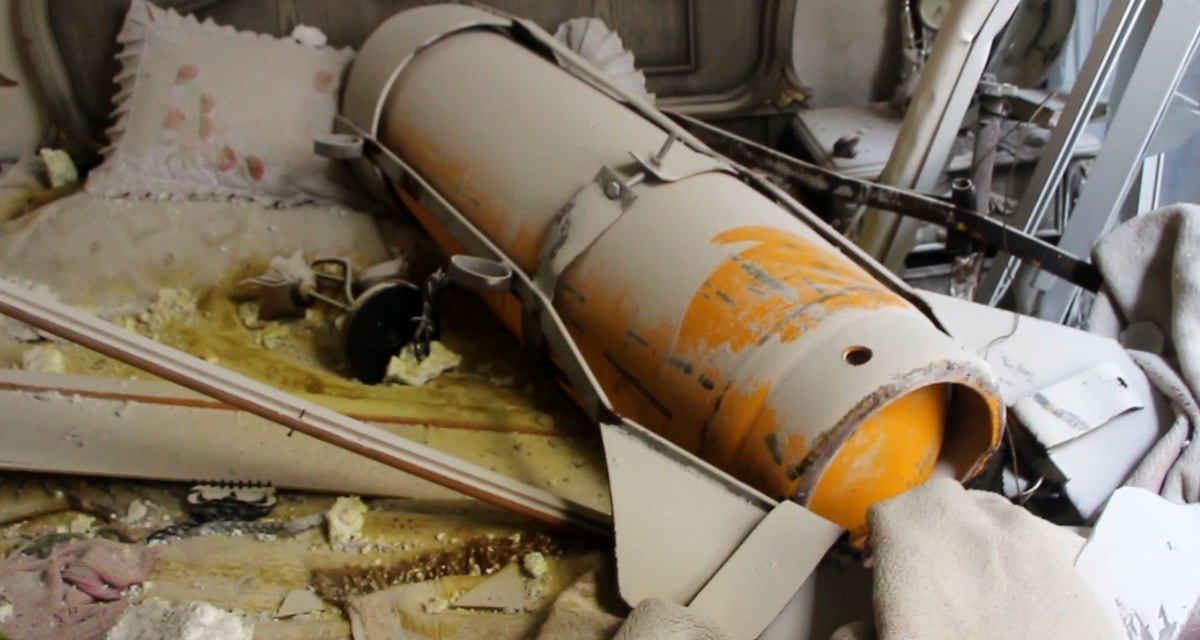The world’s watchdog on chemical weapons has reinforced its findings over a chemical attack in Syria in April 2018, taking apart a Russian-led propaganda and disinformation campaign trying to undermine inspections.
On Thursday the Organization for the Prohibition of Chemical Weapons released the report of an independent inquiry into two dissenting staff. The men — neither of whom had a significant role on the OPCW Fact Finding Mission — leaked their claims to challenge the FFM’s conclusion of a chlorine assault on Douma, near Syria’s capital Damascus, which killed 43 civilians.
The “independent, external investigators” concluded:
Two former OPCW officials violated their obligations concerning the protection of confidential information related to the FFM Douma investigation. This determination is due to their unauthorised disclosure of highly protected information to individuals who did not have a need to know such information.
Presenting the report in OPCW headquarters in The Netherlands, Secretary General Fernando Arias highlighted the investigators’ damning conclusion.
Inspectors A and B are not whistle-blowers. They are individuals who could not accept that their views were not backed by evidence. When their views could not gain traction, they took matters into their own hands and breached their obligations to the Organisation. Their behaviour is even more egregious as they had manifestly incomplete information about the Douma investigation. Therefore, as could be expected, their conclusions are erroneous, uninformed, and wrong.
See also Solving a Mystery: The Deadly Chemical Attack on Syria’s Douma and a New Document
Russia v. OPCW
The Fact Finding Mission summarized in March 2019: “Information… provides reasonable grounds that the use of a toxic chemical as a weapon has taken place.”
Russia, the essential backer of the Assad regime, immediately launched a campaign to undermine both the report and the inspectors. Moscow pushed aside the evidence and analysis to insist that the OPCW had been politicized as the instrument of Western countries.
The campaign was supported by UK-based academics, “The Working Group on Syria, Propaganda, and Media”; a blogger for the UK’s Mail on Sunday, Peter Hitchens; and pro-Assad activists and bloggers such as Vanessa Beeley, hosted by the regime to channel its propaganda.
See also The UK Academics Helping Russia Deny Assad’s War Crimes
“Her Reports From Syria Are Crap” — The British Blogger Pushing Pro-Assad Disinformation
The Russians and their allies seized upon two dissenting OPCW staff: “Alex”, who worked from Damascus to identify locations for the Douma inspections, and Ian Henderson, the OPCW liaison in Damascus. Neither was part of the Fact Finding Mission’s inspectors in Douma, but “Alex” maintained that there was no evidence of chlorine use while Henderson issued a tangential, personal report that Assad regime helicopters could not have dropped the canister which released the chemical.
The assertions of the two staff were leaked initially through Henderson’s memorandum, e-mailed the “Working Group” of UK academics. Then Wikileaks disseminated OPCW e-mails, leaked by Alex, and a presentation of his claims in Brussels in October 2019. The e-mails were also given to Hitchens, and a meeting was arranged between him and either Alex or Henderson.
The campaign has escalated in anticipation of the report by the OPCW’s Investigations and Identification Team, mandated in June 2018 by OPCW member-states to assign responsibility for chemical attacks. The IIT is due to issues its findings by this spring, according to OPCW Secretary-General Fernando Arias.
“Incomplete Information”
On Thursday, Arias presented the findings of the independent inquiry, which systemically dismantled the positions of Henderson and Alex.
The investigators said bluntly of Henderson that “he was not a member of the FFM” and “played a minor supporting role in the investigation of the Douma incident”. They noted that he did not have access to all of the information gathered by FFM, including witness interviews, laboratory results, and analyses by independent experts.
They said of his “engineering assessment”, which Henderson presented to the FFM just before the release of the Final Report in March 2019: “Although Inspector A’s assessment purports to be an official OPCW FFM report on the Douma incident, it is instead a personal document created with incomplete information and without authorization.”
On “Alex” — whose identity is known by EA WorldView — they confirmed that he was a first-time member of the FFM who “never left the command post in Damascus because he had not completed the necessary training required to deploy on-site to Douma”.
“Alex” left the OPCW at the end of August 2018 and was not part of the FFM’s ongoing investigation culminating in the Final Report six months later. But “he continued to approach staff members in an effort to have continued access to and influence over the Douma investigation”.
Russian State English-language outlets ignored the development. However, its allied network of academics, bloggers, and activists assailed the OPCW with ad hominem attacks.
Yes, and come to think of it, isn't the OPCW's great mass of affronted bloviation about confidentiality confirmation that the material leaked is genuine and important? Why get into such conniptions if it isn't? I see nothing in these reports to undermine the force of the leaks.
— Peter Hitchens (@ClarkeMicah) February 6, 2020
The UN and OPCW have found the Assad regime culpable for 33 chlorine and sarin attacks since 2014.
In November 2017, Russia used a Security Council veto to shut down the OPCW’s Joint Investigations Mechanism, after it concluded the regime carried out a sarin attack in northwest Syria that killed about 90 people and wounded hundreds that April.
But the creation of the IIT, by the overwhelming majority of OPCW member-states, revived the authority to assign responsibility for the chemical assaults.

